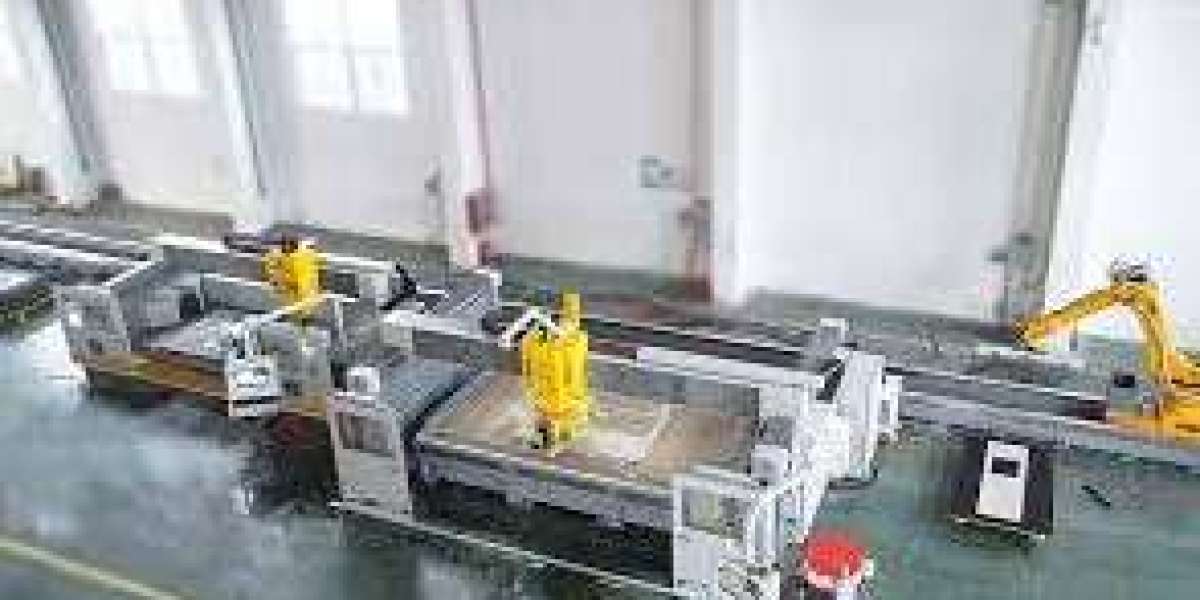Countertop Processing Machines: Compact Power for Modern Kitchens and Workspaces
In today’s fast-paced world, efficiency, compactness, and multi-functionality are becoming essential traits for appliances used in both domestic and commercial environments. Among such solutions, countertop processing machines have gained tremendous popularity due to their convenience, space-saving design, and versatility. Whether in a home kitchen or a small food service setup, these machines are powerful tools designed to handle a variety of tasks with minimal footprint.
This article explores what countertop processing machines are, the different types available, their benefits, and where they are commonly used.
What Is a Countertop Processing Machine?
A countertop processing machine refers to a compact, electrically powered appliance designed to perform various food preparation or processing tasks, all while fitting conveniently on a kitchen or workspace countertop. These machines are typically designed for efficiency and ease of use, providing powerful functionality without the bulkiness of full-sized equipment.
While most people associate them with food prep (like food processors or mixers), countertop processing machines also span across industries, including pharmaceuticals, laboratories, and cosmetics, where small-scale mixing, grinding, or emulsifying is required.
Common Types of Countertop Processing Machines
1. Food Processors
Perhaps the most well-known type, food processors are used to chop, shred, blend, knead, slice, and even juice ingredients. They are equipped with various blades and attachments to perform multiple functions.
2. Blenders
High-powered countertop blenders are essential for making smoothies, soups, sauces, and emulsions. Commercial-grade blenders are often used in juice bars and restaurants.
3. Meat Grinders
These machines are used to grind meat, vegetables, or grains, often with attachments to make sausages or pasta. Ideal for butcher shops, delis, or home chefs looking for control over food quality.
4. Mixers
Countertop mixers (like stand mixers) are a staple in baking and pastry preparation. They come with attachments for kneading dough, whipping cream, and even making pasta.
5. Juicers
Juicers extract juice from fruits and vegetables and are available in centrifugal, masticating, and cold-press varieties.
6. Espresso Machines
High-end countertop espresso machines are essentially processing units designed to extract high-quality espresso. Many also steam milk and grind beans.
7. Mini Emulsifiers and Homogenizers
Used in labs or cosmetics manufacturing, these countertop machines are designed to mix and emulsify small batches of products with precision.
Key Features and Functionalities
Countertop processing machines vary widely depending on their purpose, but they generally include:
Compact Design: Engineered to sit on a counter without occupying excessive space.
Multi-functionality: Many models come with multiple attachments or settings to perform several tasks.
Ease of Use: Simple controls, intuitive interfaces, and easy cleaning make these machines user-friendly.
Power and Performance: Despite their size, many are equipped with high-torque motors capable of handling tough jobs.
Safety Features: Built-in safety locks, non-slip bases, and overload protection ensure safe operation.
Advantages of Using Countertop Processing Machines
1. Space-Saving
Ideal for small kitchens, food trucks, or labs where space is at a premium. These machines pack performance into a compact footprint.
2. Efficiency and Speed
They significantly reduce preparation time, allowing users to focus on other tasks or increase output.
3. Versatility
One machine often replaces several tools, saving both money and space. For example, a food processor can chop, slice, and even knead dough.
4. Portability
Many models are lightweight and can be moved easily from one workstation to another, making them ideal for mobile services.
5. Cost-Effective
Compared to full-sized industrial machines, countertop versions are more affordable and accessible to small business owners or hobbyists.
Applications of Countertop Processing Machines
1. Home Kitchens
Used daily for meal prep—from blending smoothies to slicing vegetables or kneading bread dough.
2. Restaurants and Cafés
Quick food prep during peak hours, juicing, blending, or espresso-making are common tasks performed using countertop units.
3. Food Trucks and Pop-Up Kitchens
Due to limited space, food trucks rely heavily on compact, high-performance machines to deliver consistent quality on the go.
4. Laboratories
Small-scale homogenizers, grinders, or blenders are used for sample processing, particularly in pharmaceutical or chemical labs.
5. Cosmetics and Skincare
Artisan skincare businesses use mini emulsifiers to create creams, lotions, and serums in small batches.
Maintenance and Considerations
To get the most from a countertop processing machine, consider the following:
Regular Cleaning: Most units come with detachable parts that are dishwasher-safe or easy to rinse.
Blade Maintenance: Keep blades and cutting attachments sharp and clean for optimal performance.
Power Requirements: Ensure your electrical setup supports the voltage and wattage required by the machine.
Noise Levels: Some machines can be loud; consider this if noise is a concern in your workspace.
Warranty and Support: Choose brands that offer good customer service and replacement parts availability.
Innovations and Trends
With the rise of smart kitchens and IoT appliances, countertop processing machines are becoming more intelligent. Features such as:
Touchscreen Interfaces
Bluetooth or Wi-Fi Connectivity
Programmable Presets
Self-Cleaning Functions
...are becoming common, offering more control and automation to users. Sustainable materials and energy-efficient motors are also growing in popularity.
Conclusion
Countertop processing machines have revolutionized the way individuals and small businesses handle preparation and production tasks. Compact yet powerful, they embody the perfect blend of functionality and convenience. Whether you're an at-home chef, a small café owner, or a research professional, investing in the right countertop processing equipment can boost productivity, save space, and elevate the quality of your output.
As technology advances and consumer needs evolve, these machines are likely to become even more versatile, efficient, and indispensable in the modern workspace.














